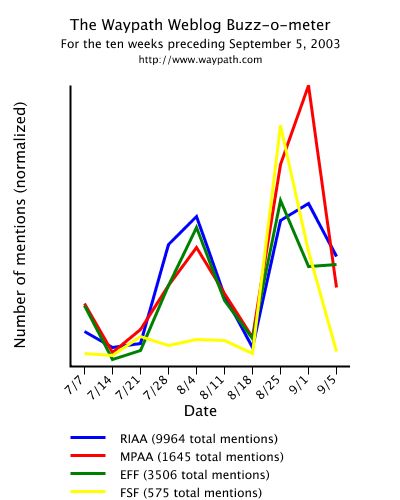Declan asks if the liability rules surrounding computer software should be tightened: « the EULA is the slickest ‘Get out of jail free card’ I can think of in recent years » says a consultant quoted in the article.
It’s an issue that I feel is very important. As computers take a larger, more important, mainstream and legitimate place in society, will the industry be forced to mature and stand for itself? While Declan talks mostly about legislation, I was wondering about the feasibility of a professional order for programmers, which is another approach to address the same issues.
As a member of a professional order, I have mixed feelings. Yes, it is a layer of bureaucracy, it is often self serving, it is expensive, it adds inefficiencies.
On the other hand, it is there to protect the public (ok, the Bar in Quebec also has the mandate of defending the interests of it’s members, but that’s an exception), it imposes guidelines and rules, it implies deontology, it mandates acts that are reserved for the members of the order. It is socially the sign of an important profession which carries out a role that is considered important enough to be regulated and that can have a significant impact on third parties. In Quebec we have about 45 different professional orders.
So what to do? Limit liability exceptions (THE STUFF IN CAPS, as mandated by US law I believe) in EULAs? Arguably, in Quebec the Consumer Protection Act already does that, in the area of software sold to consumers. It has however never, to my knowledge, been used regarding any licence or any other contract related to software. Would specific legislation be needed? Declan is understandably congress-shy when it comes to law and technology given the previous legislative track record.
The problem is clear: we’re relying more and more on software that comes without the most basic guarantees. Should we refrain from relying on software or bear the consequences when we do so? Should we seek a legal remedy? Indeed the current legal and economical context do not seem to provide the necessary incentives to improve the situation, as it appears to me disruptions caused by software only increase as use, penetration and entrenchment of software in society increases.
Maybe we’ll reach a breaking point economical losses will make the (assumed) extra cost of providing higher quality software appear acceptable? Or would increase cost of licences simply translate directly in profits for vendor?
I can’t help but feel that while a software (and hardware) market where accountability would be greater would certainly be very different than what we currently know, it might be become a necessity. I’d be curious to know what ways you feel would be appropriate to achieve this accountability.
[Wired story via Furdlog]


